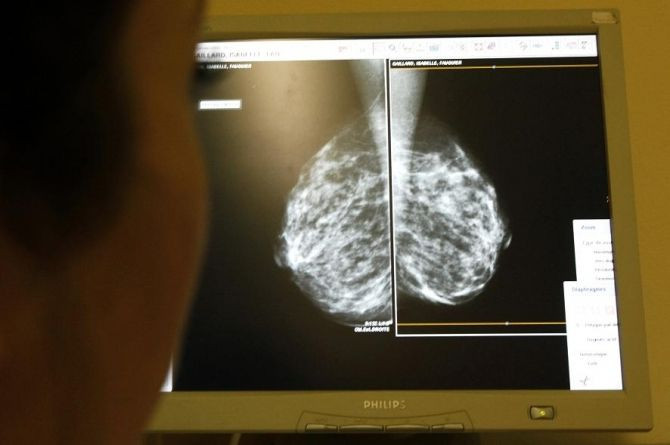Breast Cancer Drug May Be More Effective Than Previously Thought

Herceptin, an antibody used to treat breast cancers that have an over expression of the HER-2 receptor, can possibly be used to treat far more patients than currently thought.
The bar for whose breast cancer is HER-2 positive may be set too high. Currently 20 percent of breast cancers are HER-2 positive and an expansion of the usage of Herceptin may help to treat many more women.
Research published in the journal Cancer Research suggests that up to 65 percent of women with breast cancer could potentially be treated with this 21st century drug, more than tripling the market and people helped by the drug.
Researchers found that HER-2 is highly expressed on "cancer stem cells," cells thought to feed the tumor and metastasis and are a small percentage of the overall tumor mass. Because they represent a small population, the entire tumor may show up on tests as HER-2 negative.
"We can now provide a molecular explanation for the surprising finding that adjuvant Herceptin benefited some women with HER2-negative breast cancer," said study author Professor Max S. Wicha.
"If this is confirmed in clinical trials, it could alter our approach to breast cancer treatment," he added.
Additionally, the report found that HER-2 expression was high in breast cancer cells that had spread to bone and not those at the primary tumor site in the breast. By using mouse models of breast cancer, researchers found that using Herceptin blocked bone metastasis if used when the primary tumor was small.
Dr John Stingl, a Cancer Research UK expert on breast cancer stem cells, said:
From a biological perspective, this work makes a lot of sense and could be an early step towards many more women benefiting from treatments that target HER2.
Tests to see if a woman may respond to Herceptin look for abnormally high levels of HER2 in the tumour, but actually this research suggests that much lower levels of HER2 can drive the growth of some breast cancers, particularly once they have spread.
This presents the tantalising prospect of combating this spread in 'HER2-negative' cancers with Herceptin.
We don't know yet whether this will work in the clinic, but it will be exciting to see whether this elegant biological explanation means more women could benefit from this life-extending drug.
The study published in the journal Cancer Research can be found here.



























